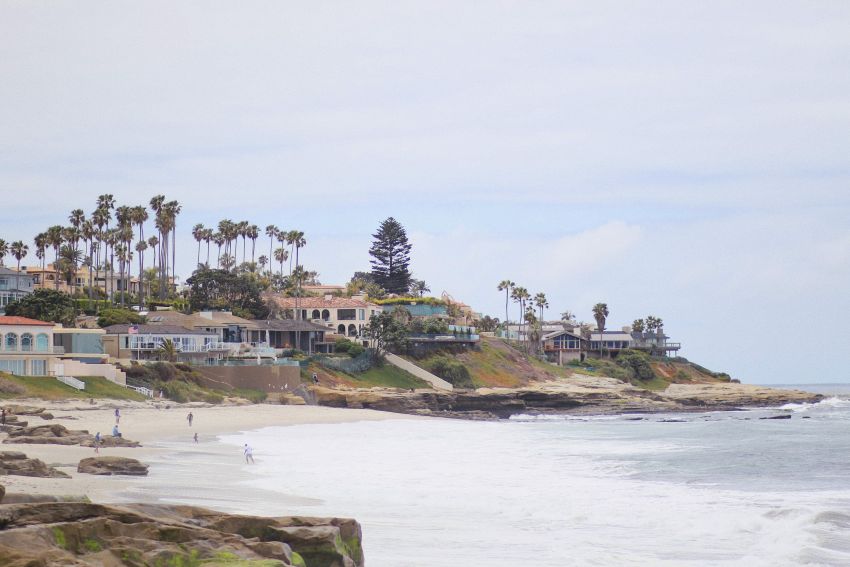Cannes Announces Tourist Caps to Combat Over-Tourism and Protect Local Environment: A New Way Towards Sustainable Travel - Travel And Tour World
Friday, July 4, 2025

In a significant move to combat the growing concerns of over-tourism, the city of Cannes, one of the French Riviera’s most beloved destinations, has announced a cap on the number of cruise passengers allowed to disembark. This new measure, set to begin in 2026, is expected to have a profound impact on both the local economy and tourism landscape. Cannes, renowned for its golden beaches, glamorous events like the Cannes Film Festival, and its luxury appeal, has long been a hotspot for tourists, particularly cruise ship passengers. However, as the city battles the negative effects of overcrowding and pollution, the new cap signals a bold and necessary step in managing visitor numbers while preserving the local environment and quality of life for residents.
Cannes, a city that attracts millions each year, has increasingly become a victim of its own success. With approximately three million visitors flocking to the city annually, many of them arriving via cruise ships, the city has been struggling to maintain the balance between tourism and sustainability. In 2024 alone, an overwhelming 460,000 cruise passengers descended upon Cannes, leading to significant overcrowding, environmental degradation, and a strain on local infrastructure. The issue of over-tourism has been exacerbated by the large number of massive cruise ships, many carrying more than 5,000 passengers at a time.
According to the French Ministry of Culture and the Environment, over-tourism poses a serious risk to cultural heritage sites, natural resources, and the well-being of local communities. As a response, many destinations, including Cannes, have been actively exploring ways to regulate and reduce visitor numbers, particularly in areas already experiencing high tourist volumes.
Starting in 2026, Cannes will implement a cap on the number of cruise passengers allowed to disembark daily, limiting it to 6,000 per day. Additionally, the city will reduce the number of mega-ships capable of carrying over 5,000 passengers by nearly half—48 percent to be exact. This reduction is a step towards achieving the long-term goal of banning all vessels that carry more than 1,300 passengers by 2030. The city’s decision was announced by the Cannes City Council and supported by both the Ministry of Tourism and the Ministry of the Environment.
For those planning to visit Cannes, this decision represents a dramatic shift in the way the city is approached by travelers. While it will undoubtedly reduce the congestion caused by massive cruise ships, it may also change the demographic of tourists who visit. Smaller ships and more selective cruise routes could attract a different type of traveler, potentially changing the dynamics of local commerce, restaurants, and attractions.
The decision is part of a larger effort by the French government to tackle over-tourism across the country. France has been at the forefront of implementing sustainability initiatives in tourism, and the French Riviera, with its popular cities like Nice, Monaco, and Cannes, has been a key focus in this initiative. The impact of this new policy is expected to be far-reaching, with local businesses likely to feel the immediate effects as the number of tourists drops significantly in the short term.
The cap on cruise passengers is likely to affect UK holidaymakers the most, as the UK remains one of the largest sources of international visitors to France. According to data from the French Ministry of Tourism, British tourists accounted for nearly 30 percent of all foreign visitors to the French Riviera in 2024. Many of these visitors arrive by cruise ships, particularly those who seek the luxury and convenience of cruise vacations that make stops along the Mediterranean coast.
The reduction in cruise passengers will likely lead to fewer options for travelers from the UK, particularly those who prefer the ease of large-scale cruise ships for their French Riviera holidays. While some may view this as a setback, others may embrace the changes, with a shift towards more eco-conscious travel options, such as smaller, more sustainable ships, or even land-based vacations.
While tourists are a vital part of Cannes’ economy, the surge in visitor numbers has placed significant pressure on local infrastructure and services. Residents have long voiced concerns about the challenges posed by over-tourism, including traffic congestion, pollution, and the loss of the city’s authenticity as it becomes increasingly catered to tourists.
The French government’s response aligns with its broader commitment to sustainable tourism. Efforts to curb over-tourism are not new; other cities around the world, including Venice, Barcelona, and Amsterdam, have introduced similar measures to protect their cultural heritage and local communities. The key challenge for Cannes will be to strike a balance between maintaining its tourism industry—one of the key drivers of the local economy—and protecting the quality of life for residents.
For businesses in the tourism sector, the shift towards fewer cruise passengers might result in short-term revenue losses. However, in the long term, this initiative could attract a more sustainable and higher-spending demographic, including eco-conscious travelers who are likely to contribute positively to the local economy.
As Cannes sets its sights on achieving these ambitious goals, the city stands as a model for other popular destinations grappling with similar issues. By focusing on sustainability and limiting the impact of tourism on the environment, the French Riviera can remain one of Europe’s premier vacation spots while also preserving its natural beauty for future generations. This delicate balance will require ongoing efforts from both the public and private sectors to create a tourism model that benefits both locals and visitors.
For those who have long dreamed of visiting Cannes or returning for another vacation, it’s essential to stay informed about the upcoming changes and adjust plans accordingly. While the cap on cruise passengers might initially feel restrictive, it’s a step towards ensuring that the allure of the French Riviera is maintained for years to come—without compromising the well-being of its residents or its environment.
French Ministry of Culture, French Ministry of the Environment, Cannes City Council, United Nations Educational, Scientific and Cultural Organization (UNESCO), International Maritime Organization (IMO), French Riviera Tourism Board, Environmental Protection Agency (EPA), World Tourism Organization (UNWTO).
«Enjoyed this post? Never miss out on future posts by following us»
Tags: Cannes, Cannes local economy, Cannes sustainable tourism, Cannes tourist cap, Cannes travel restrictions, cruise passengers limit, Europe, france, French Ministry of Culture, French Ministry of the Environment, french riviera, French Riviera Tourism, mediterranean sea, monaco, Nice, over-tourism in Cannes, United Kingdom










